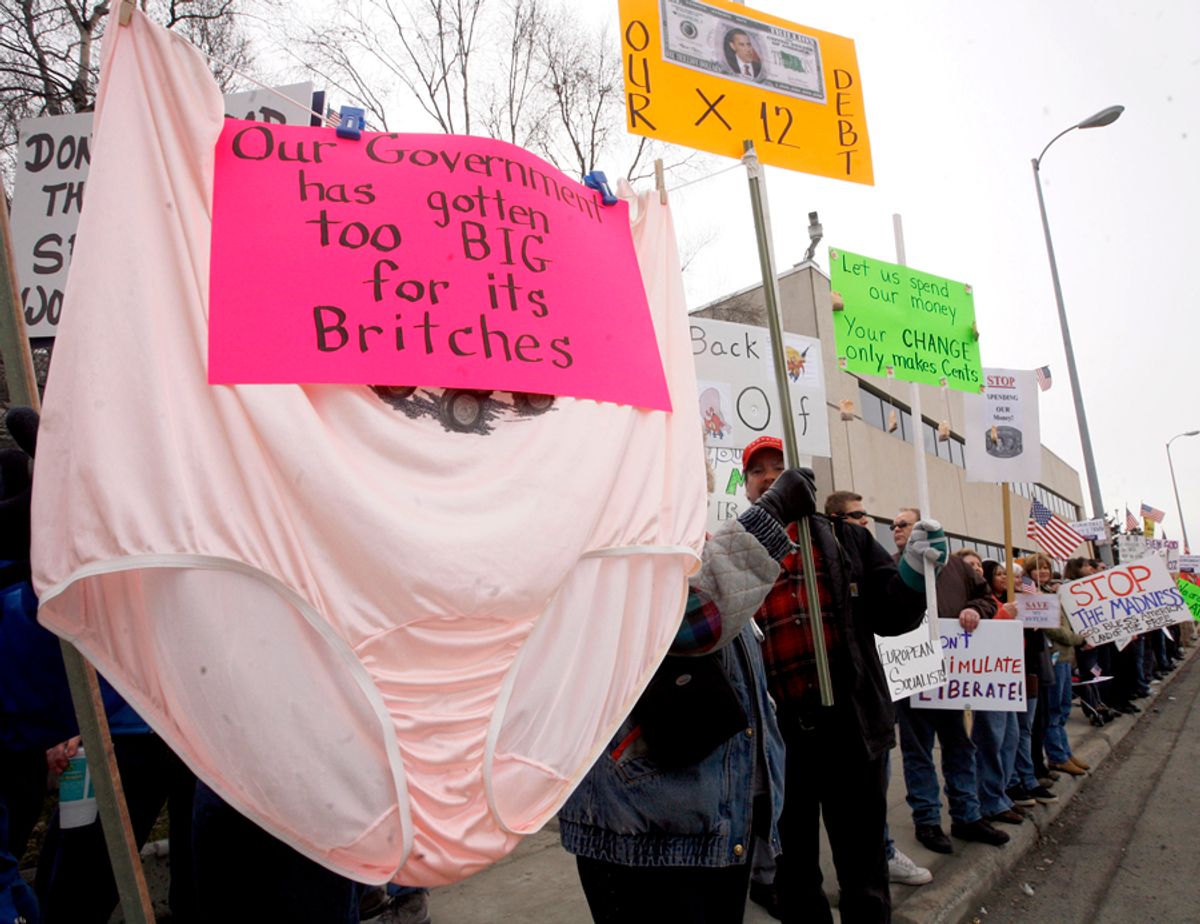Redistributionist -- as epithets go, the moniker is so mild, so ... 2008. Today, we're hammered by screeds against Democrats' alleged socialism and President Obama's supposed Marxism. The class war is clearly on -- the paranoids and royalists of the world have united, seizing the means of propaganda production in these waning days of this year's election campaign.
The onslaught, of course, is predictable. After all, this is an election season, which inevitably evokes redbaiting crusades by the plutocrats. Less predictable is this crusade's traction. As Wall Street executives make bank off bailouts, as millions of Americans see paychecks slashed and as our economic Darwinism sends more wealth up the income ladder, it's surprising that appeals to capitalist piggery carry more electoral agency than ever.
What could cause this intensifying politics of free-market fundamentalism at the very historical moment that proves the failure of such an ideology? Two new academic studies suggest all roads lead to ignorance.
The first, by Harvard's Michael Norton and Duke's Dan Ariely, finds that Americans grossly underestimate how much inequality our economy produces. Among the survey respondents, the vast majority said they believe the richest 20 percent own 59 percent of the wealth, when, in fact, that quintile owns 84 percent of the wealth. In other words, in spite of the data, many believe our system produces the moderate equality we desire, which means many see efforts to better spread wealth as a confiscatory overreach.
That, however, is not the full story of 2010. Because this now-ascendant economic view relies on misperceptions about inequality, we are still left to wonder: What accounts for those misperceptions?
Some of it undoubtedly stems from debt's illusions. In a country of overused MasterCards, we are surrounded by luxury cars, McMansions and flat-screen TVs purchased on credit. Such ubiquitous bling feigns a widespread prosperity that doesn't really exist.
Some of it is also televisual iconography. In the media's fun-house mirror we see a news world populated exclusively by six- and seven-figure salaried journalists -- as if that wealth is a societal norm. Meanwhile, on the entertainment side, our beloved sitcom families trick us into thinking our nation is less stratified than it is: We were led to believe the super-rich Huxtables epitomized the middle class just like we are now asked to regard "Modern Family's" affluence in the same way.
But, as insidious as artificial aesthetics are, the most powerful factor in our economic illiteracy is found in the other new academic report -- the one examining our innate denial reflex.
As Northwestern University's David Gal and Derek Rucker recently documented in a paper titled "When in Doubt, Shout!," many Americans respond to convention-challenging facts not by reevaluating their worldview. Shaken by an assault on their assumptions, many become more adamant in defense of wrongheaded ideas.
So, for instance, we may be aware that our broken economy is creating destructive inequality; we may know the neighbor's opulence is underwritten by loans; we may understand that Brian Williams' multimillion-dollar NBC salary is uncommon; and we may appreciate that seemingly average "30 Rock" characters make above-average salaries. We may get all this, and we may even see the connection between our personal financial struggles and Census figures showing inequality at a record high. But many of us nonetheless react by more passionately insisting our economic system sows equality -- and worse, by embracing a free-market-worshiping politics aimed at halting systemic change.
This means the current crisis is deeper than we imagine. In a past recession, we could all at least concede that the challenge was "the economy, stupid." Now, though, we can't even agree on that truism. Our problem is the stupidity, stupid -- and solving that will take far more than an election.



Shares